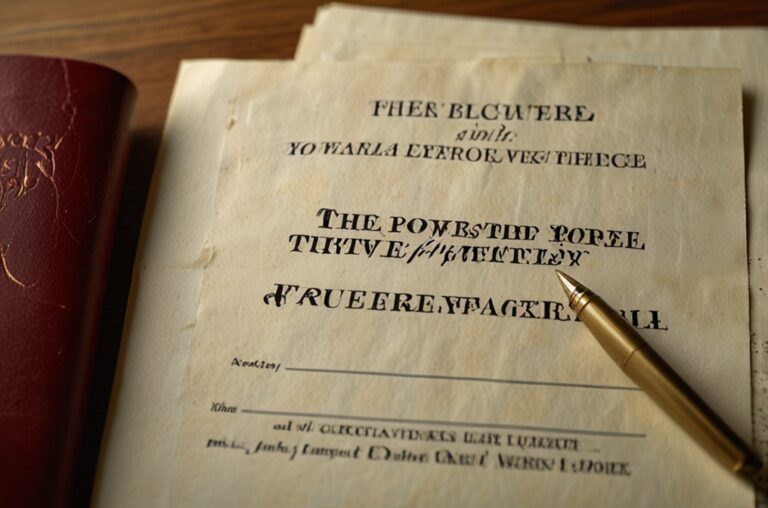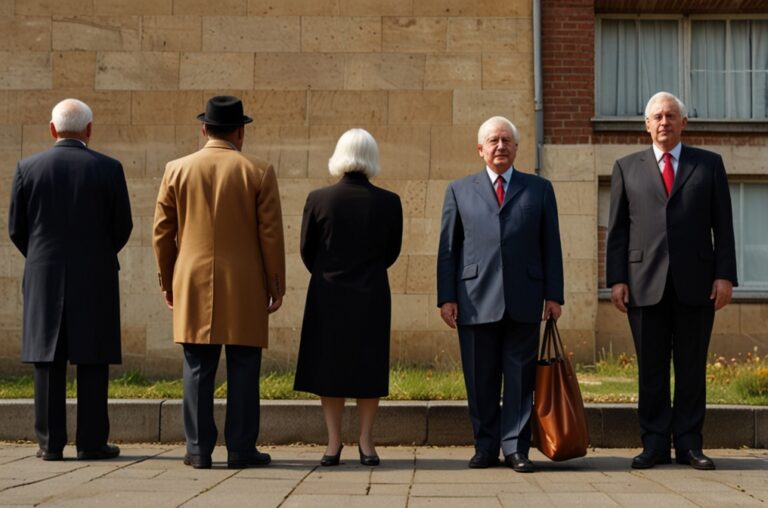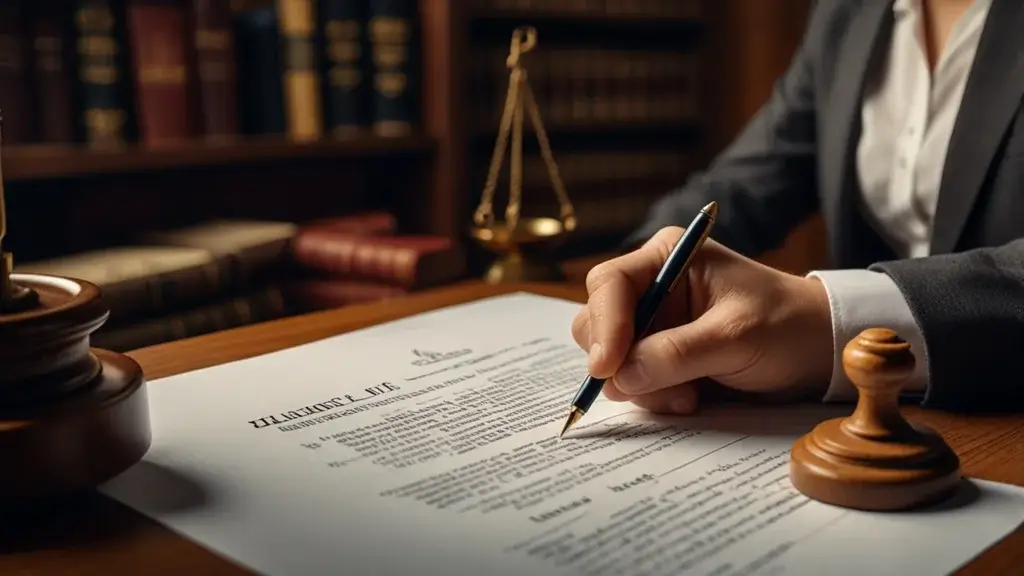Key Features of the Trust Act 1882
Here are the key features of the Trust Act 1882.
CHAPTER I – PRELIMINARY
Short Title and Commencement
This legislation is referred to as the Trusts Act of 1882, which came into force on March 1, 1882. It is applicable nationwide; nevertheless, certain issues, like as Islamic law concerning Waqf and familial relationships, remain unaffected. It includes a fundamental introduction to a trust. A trust is a fiduciary relationship involving three parties, wherein the first party (the Author) transfers property to the second party (the Trustee) for the benefit of the third party (the Beneficiaries).
1. Repeal of Enactments
This section discusses the abrogation of prior legislation by a governmental decree in 1981. The 1991 Ordinance temporarily abolished the Trust Act of 1882, which was subsequently reinstated.
2. Interpretation Clause – “Trust”
Specifies terminology associated with trusts, including the trustor, trustee, beneficiary, trust assets, breach of trust, and registration. It elucidates the meaning of “notice” and cites definitions from the Contract Act of 1872. This section interprets several phrases pertaining to a Trust. The author of the trust is the proprietor of the trust. The trustee is the third party entrusted with and accepting the confidence of the trust. A beneficiary is an individual who receives interest or money from a trustee. Beneficial interest refers to income or capital. The Instrument of Trust comprises the trust paperwork. A breach of trust constitutes the established standards or principles set out by the trustor. Registered denotes the registration of the Trust, contingent to its eligibility for registration. Notice signifies that all parties should be informed by the author or settler.
CHAPTER II – CREATION OF THE TRUSTS
3. Lawful Purpose: Trusts can be established for any lawful purpose. Trusts may be constituted for any legal purpose. It should not violate the law, be deceptive, or contradict public policy. If it breaks the law, defrauds, harms others, or contradicts morals or public policy, it is invalid. It gives instances of illegal intent.
4. Trust of Immovable and Movable Property: Land and building trusts must be written and registered. Unless it would induce fraud, moveable property trusts must declare or transfer ownership to the trustee in writing. Moveable and immovable property are invalid unless certified Testamentary or Non Testamentary trust.
5. Creation of Trust: Explains trust creation, including the purpose, beneficiary, and trust property. It provides instances to show when a trust is created. To develop a trust, the author must use words or actions with reasonable assurance. A trust requires author, purpose, beneficiaries, and trust property.
6. Who May Create Trusts: Any person capable of making contracts can create a trust. Minors can do so with court permission. However, laws about how the trust property can be disposed of must be followed.
7. Subject of Trust: The trust property must be assignable to the beneficiary, rather than merely representing a beneficial interest in another trust.
8. Who May Be Beneficiary: Any individual with the capacity to possess property may serve as a beneficiary. They may relinquish their shareholding in the trust.
9. Who May Be Trustee: Anyone may hold property as a trustee. The trustee must be allowed to contract if discretion is needed. Trustee acceptance is optional, but must be explicitly stated. Trusts may be revoked within a reasonable period.

CHAPTER III – OF THE DUTIES AND LIABILITIES OF TRUSTEES
10. Trustee to Execute Trust: The trustee is obligated to fulfill the trust’s purpose and adhere to the grantor’s directives. The trustee must carry out the trust’s objective and implement the creator’s instructions unless all contract-making beneficiaries agree differently. Courts may provide permission to beneficiaries who cannot contract. If following instructions is impracticable, unlawful, or damaging to beneficiaries, the trustee is not compelled to do so. It’s anticipated that a trust founded to cover debts would pay just the debts at the time of creation, without interest.
11. Trustee to Inform Himself of State of Trust-Property: The trustee must quickly grasp the trust property, transfer it to themselves if necessary, and invest it according to the trust’s conditions. If trust property is a debt, the trustee should collect it quickly. The trustee must learn about the trust property as quickly as feasible.
12. Trustee to Protect Title to Trust-Property: Trust property ownership must be defended and preserved by the trustee. If trust property is immovable and unregistered, the trustee must register it legally. The trustee must preserve the trust title.
13. Trustee Not to Set Up Title Adverse to Beneficiary: The trustee cannot claim or help others claim trust property against the beneficiary’s interests. Trustee cannot violate its requirements or harm beneficiaries.
14. Care Required from Trustee: Trust property must be handled as carefully as personal property by the trustee. In the absence of an alternative agreement, the trustee has no liability for the loss, damage, or depreciation of trust property. The trust property must be managed with the same diligence as one’s personal assets.
15. Conversion of Perishable Property: Unless the trust instrument says otherwise, the trustee must turn perishable or prospective trust property into something permanent and lucrative if it benefits numerous persons in succession.
16. Trustee to Be Impartial: If there are several beneficiaries, the trustee must treat them equally. Unless the trustee acts improperly or in bad faith, the court cannot intervene.
17. Trustee to Prevent Waste: If one beneficiary possesses the trust property and threatens to damage it, the trustee must take action to prevent the damage.
18. Accounts and Information: The trustee is obligated to maintain precise records of the trust property and furnish comprehensive information on it to the beneficiary upon request.
19. Investment of Trust-Money: In the absence of contrary stipulations in the trust agreement, the trustee is obligated to invest the trust funds in specified securities.
20. Mortgage of Land Pledged to Government or Deposit in Government Savings Bank: These securities are lucrative and safe. Certain investments need formal authorization from life beneficiaries of trust income.
21. Mortgage of Land Pledged to Government or Deposit in Government Savings Bank: This section indicates that the investment laws for trustees do not pertain to pre-law investments. If trust funds are below three thousand rupees, trustees may invest in property utilized as collateral for a loan under the Land Improvement Loans Act of 1883 or deposit it in a Government Savings Bank.
22. Sale by Trustee Directed to Sell with in Specified Time: A trustee must convince the beneficiary that extending a sale deadline didn’t hurt them unless a court allows it.
23. Liability for Breach of Trust: If a trustee abuses trust regulations, they must recompense for any damage unless the beneficiary fooled them, consented to the violation without coercion, or subsequently approved it knowing all the circumstances. If the trustee fails to invest or pays the beneficiary on time, they may have to pay interest.
24. No Set-off Allowed to Trustee: A trustee can’t balance losses from breaking the rules in one part of the trust against gains from another part.
25. Non-liability for Predecessor’s Default: A successor trustee is not liable for the actions of the preceding trustee.
26. Non-liability for Co-trustee’s Default: Typically, one trustee is not accountable for the errors of another trustee. But, in some situations, like if they didn’t check how the other trustee used trust property or if they knew about a breach and didn’t act, they can be held accountable.
27. Several Liabilities of Co-trustee: If co-trustees violate the trust or facilitate each other’s violations, each is accountable for the resulting loss.
CHAPTER IV – OF RIGHTS AND POWERS OF TRUSTEE:

28. Right to Title-Deed: The less at-fault trustee may require the more at-fault trustee to share the loss.
29. Non-liability of Trustee Paying without Notice of Transfer by Beneficiary: If a beneficiary’s interest is transferred without the trustee’s awareness, the trustee is not responsible for disbursing or delivering the trust property to the new recipient.
30. Liability of Trustees Where Beneficiary’s Interest Is Forfeited to the Government: The trustee must follow the government’s instructions to manage trust property for a beneficiary who loses their interest.
31. Indemnity of Trustees: Except for fraud or trust breaches, trustees are solely accountable for what they receive as trustees and not for each other’s acts or losses incurred by others managing trust property.
32. Right to Title-Deed: A trustee is entitled to possess the trust instrument and any documentation that verify ownership of the trust assets.
33. Right to Reimbursement of Expenses: Trustees may spend trust funds for trust management. If they spend their own money, the trust will reimburse them. If the trust doesn’t have enough money, they might demand payment from the client.
34. Right to Indemnity from Gainer by Breach of Trust: If someone else profits from a trustee breaching the regulations, they must reimburse the trustee. If the beneficiary gained, the trustee may take it back.
35. Right to Apply to Court for Opinion: Trustees may seek judicial guidance on trust property management without trial. They won’t be held responsible if they honestly follow the court’s recommendations.
36. Right to Settlement of Accounts: When a trustee finishes their duties, they can ask to have their accounts checked. If they didn’t owe anything to the beneficiary, they get a written confirmation.
37. General Authority of Trustee: A trustee can do things not explicitly mentioned in the trust document if they’re reasonable and benefit the trust. They can’t lease property for more than 21 years without court permission.
38. Power to Sell in Lots: Trustees can sell trust property either all together or in parts, publicly or privately, and at different times unless the trust document says otherwise.
39. Power to Sell under Special Conditions: When selling trust property, trustees can include reasonable conditions in the sale contract. They can also buy back property at auction and resell it without being blamed for any loss.
40. Power to Convey: Trustees has the authority to transfer or sell the property as necessary to finalize a sale.
41. Power to Vary Investments: If justified, trustees may invest trust money differently. Unless the trust contract indicates otherwise, lifelong trust income recipients must consent to the modification.
42. Power to Apply Property of Minors, etc: Trustees may utilize trust money for minors’ education and upkeep. Any extra money must be saved and invested for the youngster. With court approval, they may utilize trust property for minors’ costs if income is insufficient.
43. Power to Give Receipts: Trustees can give written receipts for any money or property they handle, which clears the payer from any responsibility for what happens to it afterward unless there’s fraud.
44. Power to Compound, etc.: Trustees may settle trusts if they believe it’s best. Truthful people won’t be held accountable for losses. This applies solely to trusts created after this statute began, unless the trust deed indicates otherwise.
45. Power to Several Trustees of Whom One Disclaims or Dies: If a trustee quits or dies and there are others left, those remaining can still act unless the trust document says otherwise.
46. Suspension of Trustee’s Powers by Decree: If there’s a court order about the trust, trustees must follow it or get court permission to act differently.
CHAPTER V – OF THE DISABILITIES OF TRUSTEES
47. Trustees Cannot Renounce After Acceptance: Once a trustee agrees to be a trustee, they can’t quit unless the court allows it, the beneficiary agrees, or the trust document says they can.
48. Trustee Cannot Delegate: Trustees can’t pass their duties to someone else unless the trust document allows it, it’s normal business, it’s necessary, or the beneficiary agrees. Simple tasks like hiring help don’t count as delegation.
49. Co-trustees Cannot Act Singly: All trustees usually have to agree before taking any action unless the trust document says otherwise.
50. Control of Discretionary Power: If a trustee doesn’t use their power fairly and honestly, a court can make them follow the rules.
51. Trustee May Not Charge for Services: Usually, trustees can’t get paid for their work unless the trust document or a court says they can.
52. Trustee may not use trust-property for his own profit – A trustee shall not employ trust assets for personal benefit or any other purpose.
53. Trustee for sale or his agent may not buy – No trustee or agent appointed to sell trust property may, either directly or indirectly, purchase the property or any interest therein for personal gain or on behalf of a third party.
54. Trustee may not buy beneficiary’s interest without permission – No trustee or recently terminated trustee may acquire or become a mortgagee or lessee of the trust property or any portion thereof without the consent of a primary Civil Court of original jurisdiction, unless the intended acquisition, mortgage, or lease serves the interests of the beneficiary. No trustee responsible for acquiring a mortgage or lease of specified property for the beneficiary may purchase it or any portion thereof for personal gain.
55. Co-trustee may not lend to one of themselves – A trustee or co-trustee who invests trust funds in mortgage or personal security is prohibited from investing in their own or another co-trustee’s mortgage.

CHAPTER VI – OF RIGHTS AND LIABILITIES OF BENEFICIARY
56. Rights to rents and profits – The beneficiary is entitled to the rents and earnings from the trust property, in accordance with the trust agreement.
57. Right to specific execution – If there is a single beneficiary capable of contracting, or many beneficiaries who are both competent and in agreement, they may request the trustee to transfer the trust property to themselves or to a designated individual. The second provision of this Act exempts property inherited or bequeathed to a married woman, therefore prohibiting her from selling her beneficial interest.
58. Right to inspect and take copies of instrument of trust accounts, etc. – The beneficiary is entitled to see and replicate the trust instrument, the title papers pertaining exclusively to the trust property, the accounts and vouchers (if applicable) that substantiate them, as well as the trustee’s cases and opinions for advice in fulfilling his responsibilities.
59. Right to transfer beneficial interest – If competent to contract, the beneficiary may transfer his interest, according to the legislation at the time regarding the conditions and scope of such disposition: Nothing in this provision authorizes a married woman to transfer property granted or gifted for her benefit during her marriage thus she cannot divest herself of her beneficial interest.
60. Right to sue for execution of trust – If no trustees are appointed, all trustees die, disclaim, or are dismissed, or for any other reason the trustee’s execution of a trust is impracticable, the beneficiary may suit, and the Court shall execute the trust as far as feasible until a trustee is appointed.
61. Right to proper trustees – The beneficiary is entitled, under the trust document, to have the trust property effectively protected, maintained, and administered by qualified individuals in appropriate numbers.
62. Right to compel to any act of duty – The beneficiary possesses the authority to compel the trustee to fulfill any specified duty and to avert any anticipated or potential breach of trust.
63. Wrongful purchase by trustee – The beneficiary may have trust property designated as subject to the trust or reallocated by the trustee if it remains unsold, or by any individual with knowledge of the trust if it was obtained from them, in cases where a trustee has wrongfully acquired it.
64. This means the recipient must pay the trustee’s purchase money, interest, and property maintenance charges. If in actual possession, the trustee or purchaser must account for the property’s net profits, impose occupancy rent, and let the beneficiary deduct a proportionate amount of the purchase price.
65. Following trust-property-into the hands of third persons; into that into which it has been converted – When trust property is held by a third party in contravention of the trust, the beneficiary may compel the third party to acknowledge it or initiate a legal action or declaration.
66. Saving of rights of certain transferees – Section 63 does not grant the beneficiary any rights over property held by a transferee either in good faith for consideration without notice of the trust, or for consideration from a transferee. A judgment-creditor of the trustee attaching and buying trust property is not a transferee for consideration.
67. Acquisition by trustee of trust-property wrongfully converted – If a trustee unjustly sells or otherwise transfers trust property and then becomes the owner, the property again becomes subject to the trust, regardless of intervening transferees’ good faith notice for consideration.
68. Right in case of blended property – If the trustee unlawfully commingles trust property with personal assets, the beneficiary is entitled to a claim against the entire fund for their rightful share.
69. Wrongful employment by partner-trustee of trust-property for partnership purposes – If a trustee partner unlawfully uses trust property in the company or on the partnership’s behalf, the other partner is personally accountable to the beneficiaries unless he knew about it. Partners receiving such warning are jointly and severally accountable for trust violation.
70. Liability of beneficiary joining in breach of trust – If any beneficiary breaches trust, gains a benefit without authorization, hides a violation, or deceives the trustee, the remaining beneficiaries may be jeopardized. This provision does not apply to property gifted or bequeathed to a married woman thus she cannot remove herself of her beneficial interest.
71. Rights and liabilities of beneficiary’s transferee – Every individual to whom a beneficiary transfers his interest possesses the beneficiary’s rights and obligations at the date of the transfer.
CHAPTER VII – OF VACATING THE OFFICE OF TRUSTEE
72. Office how vacated – The position of a trustee is rendered vacant upon their death or dismissal from the role.
73. Discharge of trustee – The trustee may be dismissed from office by the following methods: termination of the trust, fulfillment of responsibilities, stipulated procedures, and appointment of a successor trustee, mutual consent of the trustee and beneficiary, or judicial intervention.
74. Petition to be discharged from trust – Notwithstanding Section 11, a trustee may request a primary Civil Court of original jurisdiction to be relieved of his duties. Should the Court determine adequate grounds, it may release him and order his expenses to be covered by the trust funds. In the absence of reason, the Court will withhold his release until an appropriate substitute is located.
75. Appointment of new trustees on death, etc. – If any trustee, either original or substituted, dies, is absent from Pakistan for six months or leaves Pakistan to live abroad, is declared insolvent, desires to be discharged from the trust, or refuses or becomes unfit or incapable to act in the trust, or accepts an inconsistent trust the new trustee will be appointed by The person nominated by the instrument or trust (if any), or (b) If there is no such person or no such person able and willing to act, the author of the trust if he is alive and competent to contract, the surviving or continuing trustee or trustee for the time being, or legal representative of the last surviving and continuing trustee, or (with the Court’s consent) the retiring trustee, if they all retire simultaneously, or Everyone who meets must record it. A new director may increase the number. If there’s only place for one single trustee, the Official Trustee might be appointed with his approval and the Court’s order. This section discusses a trustee who dies before the grantor and a continuing trustee who refuses or leaves.
76. Appointment by Court – The beneficiary may petition a primary Civil Court of original jurisdiction to appoint a trustee or replacement trustee if a vacancy or disqualification makes it impracticable to appoint one under section 73.
77. Vesting of trust-property in new trustees – When a new trustee is appointed under section 73 or section 74, any trust-property formerly vested in the surviving or continuing trustees, trustee, or legal representative becomes vested in the new trustee, either exclusively or jointly.
78. Survival of trust -If one of many co-trustees dies or is released, the trust survives and property goes to the others, unless the instrument indicates otherwise.

CHAPTER VIII – OF THE EXTINCTION OF TRUSTS
79. Trust how extinguished – A trust is extinguished when its purpose is fulfilled, it becomes illegal, trust property is destroyed, or it is explicitly relinquished.
80. Revocation of trust – Testators can cancel willed trusts. If all beneficiaries are competent to contract, the trust was announced by non-testamentary instrument or word of mouth, or the author’s obligations were not reported to creditors, the trust can be cancelled.
81. Revocation not to defeat what trustees have duly done – A trust cannot be revoked by a trustor to negate the actions of the trustees.
CHAPTER IX – CERTAIN OBLIGATIONS IN THE NATURE OF TRUSTS
82. Where obligation in nature of trust is created – A trust-like responsibility is established in the subsequent scenarios.
83. Where it does not appear that transferor intended to dispose of beneficial interest – If a property owner transfers or bequeaths without intending to dispose of the beneficial interest, the transferee or legatee must keep the property for the owner or his legal representative.
84. Transfer to one for consideration paid by another – If someone transfers property for a payment paid or given by another and it seems that the other person did not intend to pay or supply the consideration, the transferee must keep the property for the payer or supplier.
85. Trust incapable of execution or executed without exhausting trust-property – The trustee must keep the trust property, or what remains, for the trust author or his legal agent unless otherwise instructed.
86. Transfer for illegal purpose – If a property owner transfers it illegally and the objective is not carried out, the transferor is not as responsible as the transferee, who must keep the property for the transferor.
87. Bequest for illegal purpose – If the will or the legatee decides to use property illegally, the legatee must hold it on trust for the testator’s legal representative.
88. Transfer pursuant to rescindable contract – After discovering that the contract is revocable or fraudulent, the transferee must retain property for the transferor and pay the transferor.
89. Debtor becoming creditor’s representative – A debtor who becomes a creditor’s executor or legal agent must keep the debt for the beneficiaries.
90. Advantage gained by fiduciary – If a trustee, executor, partner, agent, director of a company, legal advisor, or other person bound in a fiduciary capacity to protect the interests of another person gain a pecuniary advantage by using his character, or if he enters into any dealings under circumstances in which his own interests are, or may be, adverse to those of the other person, he must hold.
91. Advantage gained by exercise of undue influence – When undue influence is used to degrade another’s interests, the person who gains the advantage without consideration or notice must hold it for the prejudiced party’s benefit.
92. Advantage gained by qualified owner – A tenant for life, mortgagee, co-owner, or other qualified owner of a property must hold the advantage for the benefit of all other interested parties, but they must repay their due share.
93. Property acquired with notice of existing contract – A person who obtains property with knowledge that another has a contract touching it that may be enforced must maintain it for the other to enforce.
94. Purchase by person contracting to buy property to be held on trust – To satisfy the contract, a trustee must hold property for beneficiaries.
95. Advantage secretly gained by one of several compounding creditors – Creditors who compound loans and gain an unfair advantage over their co-creditors by a secret arrangement with the debtor shall keep it for them.
96. Constructive trusts in cases not expressly provided for – In cases without a trust but with a partial beneficial interest, the person in possession of property must hold it for the benefit of the persons with such interest, or the remains thereof, to the extent essential to satisfy their just demands.
97. Obligator’s duties, liabilities and disabilities – The person retaining property according to with any of the preceding sections of this Chapter must fulfill the same obligations and be subject to the same liabilities and disabilities as a trustee for the person for whose benefit he holds it: Provided that (a) he is entitled to reasonable remuneration for his trouble, skill, and loss if he rightfully cultivates or uses the property in trade or business.
98. Saving of rights of bona fide purchasers – This Chapter does not limit transferees’ good-faith compensation rights or require them to circumvent laws.






